Vegetarianism Should be a Global Priority: New Research from World Resources Institute Demonstrates Devastating Environmental Impact of Meat Industry
Yet another well-researched report reinforces the devastating environmental impact of the meat industry — as we previously reported in Buddha Weekly, in our feature “Five Ways Vegetarianism Could Save the World.” At the time we published the story a small minority of readers suggested our numbers were exaggerated. This report, together with several others, indicates we underestimated the devastation. The facts are not arguable — only a course of action to minimize damage is arguable.
Even a small reduction can slash tonnes of carbon emissions
Released this week, the paper found that even a minor shift away from animal products could cut agricultural land use by 2.5 million square miles and slash “billions of tonnes of carbon emissions over time.” [1]
Our projections in Buddha Weekly’s previous story were more conservative than the new report. We had cited meat as using 23 times as much land as crops, while in fact as compared to maize or rice, meat uses 40 times more land.
According to the report, even a modest decrease in consumption of animal protein (as projected in their scenarios) would result in at least a 10 percent reduction in agriculture-related greenhouse gas emissions, and 13 percent reduction in land used. More ambitious scenarios could literally save the planet.
Meat: 15 times more land and 8.3 times the carbon emissions compared to vegetables
For example, meat requires 15 times the land allocation as compared to fruits and vegetables, and 30 times that of soybeans.[2] Each million kilocalories consumed by people on the planet, contributes to unsustainable land use and extraordinary increases in carbon emissions. For example, for the same million kilocalories consumed, meat requires 10,000 m3 in land and generates 250 t CO2e. Compare that to just over 1,000 m3 of land for fruits and vegetables, generating approximately 30 tC02e. [See inset chart from report]
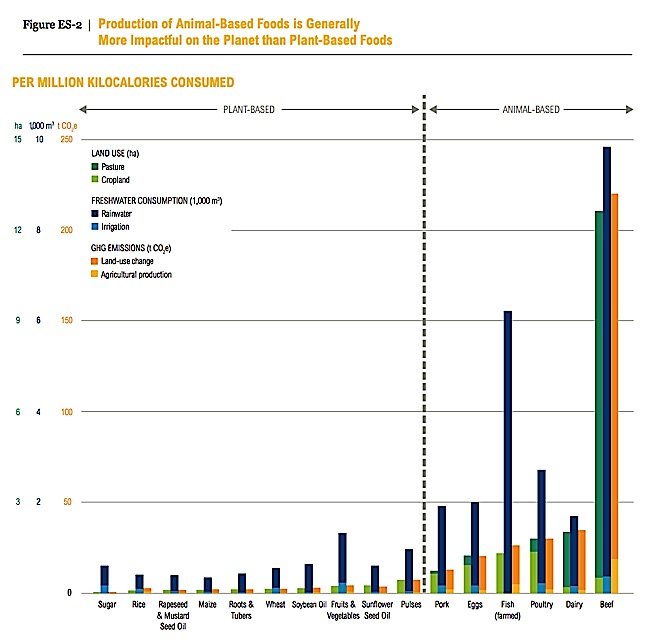
Meat, in other words, requires ten times the land and produces 8.3 times the pollution, as compared to fruits and vegetables. When compared to maize or rice, the multiple increases to nearly 40 times the land allocation (in other words, meat requires 40 times more land). Maize and rice also had the lowest carbon footprint, coming it at just over 10 tC02e (compared to meat at 250 t C02e)
One single change could save a planet: lower meat consumption
In other words, because of “overconsumption of protein” particularly meat — and aside from the $2 Trillion cost of healthcare (in 2012) — the impact to the planet could be devastating. In order to close the expected gap in food demand as populations grow, there would be insufficient land to support beef or poultry as a protein source for the majority of people. The pollution load would far outweigh any achievements made to date in global warming control to date.
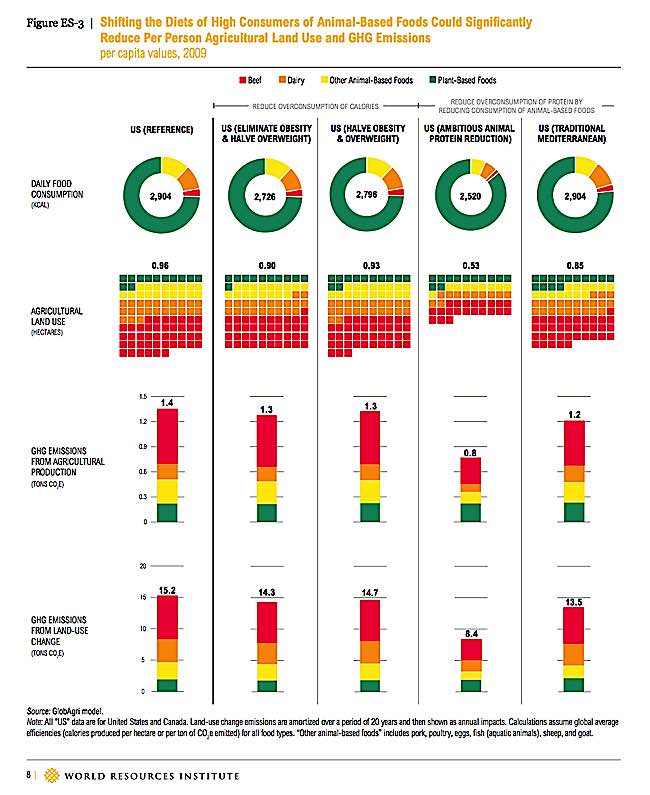
The report studied three “diet shift” protocols designed to project advantages of each with regard to the issues. The highest impact or gain came from “Diet Shift 2: reducing consumption of animal based proteins”. They studied the projected impact on the United States, and then on a global scale.
Animal-based foods account for Nearly 85% of production related greenhouse gases (USA)
“We found that producing the food for the average American diet in 2009 required nearly one hectare of agricultural land and emitted 1.4 tons of carbon dioxide equivalent (C02e), before accounting for land-use… Animal- based foods accounted for nearly 85 percent of the production related greenhouse gas emissions and early 90 percent of agricultural land use. Beef consumption alone accounted for nearly half of the US diet-related agricultural land use and green house gas emissions.”[3] [Inset Chart ES-3]
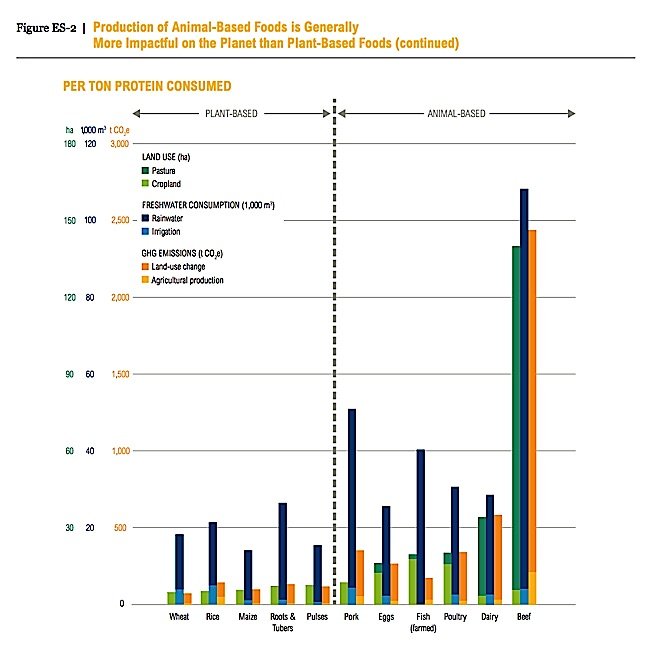
Taken another way, given the projection of a 70 percent food gap, if you consider the same factors — land use and carbon emissions — against a ton of protein produced, meat requires just under 110,000 m3 of land and would produced 2,500 tCO23 versus wheat or rice, averaging 20,000 m3 and only 500 tC023.
Compassion: The cost in suffering: 3,000 animals die each second to feed America
We had previously cited in our last report 56 billion farmed animals killed in the US alone each year, to reinforce our argument that the case for lowering animal-protein consumption wasn’t just about carbon emissions and land use:
“Over 56 billion farmed animals are killed each year by humans — 10 billion land animals in the U.S. alone. 3,000 die each second. [5] This does not include countless fish. Billions of animals suffer and die painfully — animals who, according to scientists, are sentient and feel emotions. [4]. Put another way, each person who eats meat, is directly responsible for the lives of an average of 95 slaughtered animals each year. [5]”
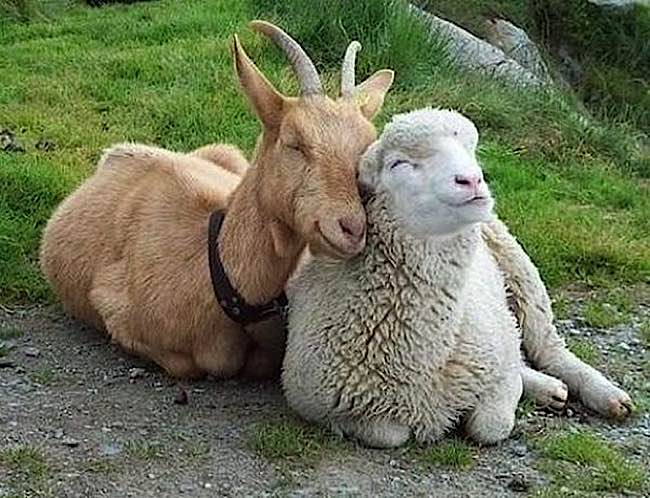
We had also made this rather direct illustration: That restaurant steak on the plate could represent 9,000 liters of water, 40 kilograms of poop (waste), 4 kilograms of feed and more emissions pollution than a car might create on an hour-long drive to the restaurant.
To reinforce the compassionate argument, we also cited a previous report from influential scientists clarifying that “all non human animals… are conscious beings” from our previous story>>
We challenged readers: “The advance in non-human rights begs the question, from a Mahayana Buddhist perspective, when we promise to liberate all sentient beings — or not to kill — just who do we include? If our definition includes all beings down to insects and octopuses, how do we reconcile our dependence on “lower” beings for survival?”
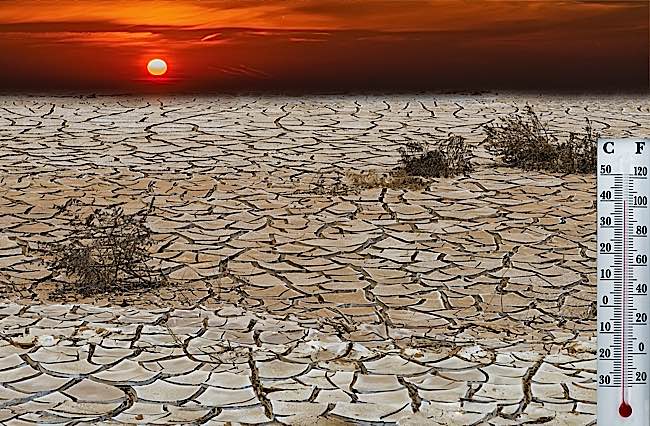
70 percent food gap by 2050 as population nears 10 billion
“Building on the United Nations Food and Agriculture Organizations (FA0) food demand projections, we estimate the world needs to close a 70 percent ‘food gap’ between the crop calories available in 2006, and expected calorie demand in 2050,” concludes the report. The gap stems from both population growth and changing diets, with the global population expected to be nearly 10 billion by 2050, “two-thirds of those people projected to live in cities.”
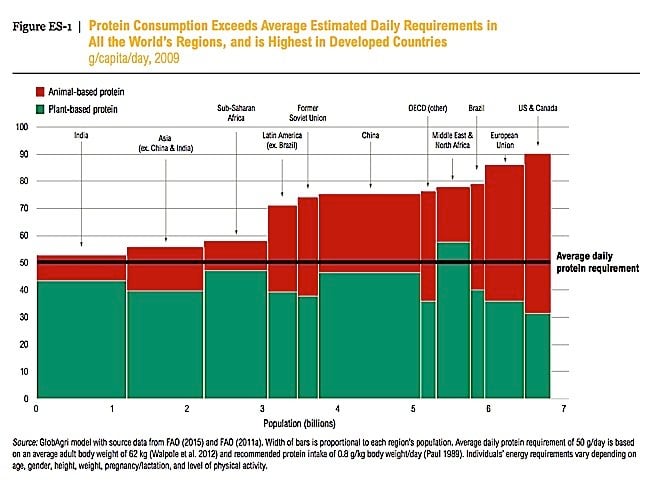
The combination of growing wealth and “Multinational businesses … increasingly influencing what is grown and what people eat” are considered factors in the growth of an appetite for meat. “Together, these trends are driving a convergence toward Western-style diets, which are high in calories, protein, and animal-based foods. As calorie intake increases, health issues and costs grow as well.” The report ads “Overconsumption of calories… especially protein” as people grow wealthier, “widens the food gap, driving unnecessary agricultural impacts” and possibly devastating environmental impact.
While in the past, the issue was mostly solved through “increased agricultural production” this growth in population makes that largely unsustainable as long as meat is a dominant food choice.
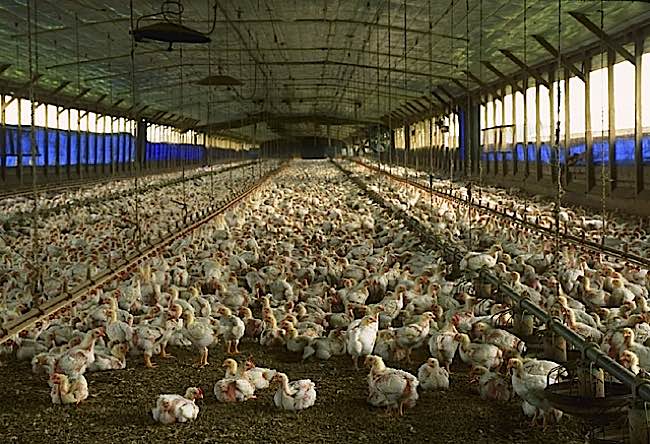
NOTES
[1] “Shifting Diets for a Sustainable Food Future, installment 11, April 2016 https://www.wri.org/sites/default/files/Shifting_Diets_for_a_Sustainable_Food_Future_0.pdf
[2] Data chart inset
[3] Page 7 of report.
[4] “5 Ways Vegetarianism Could Save the World” Buddha Weekly https://buddhaweekly.com/5-ways-vegetarianism-save-world-5-buddhists-teachings-teachers-recommending-vegetarian-lifestyle-5-reasons-ethical-thing/
More articles by this author
Search
Latest Features
Please support the "Spread the Dharma" mission as one of our heroic Dharma Supporting Members, or with a one-time donation.
Please Help Support the “Spread the Dharma” Mission!

Be a part of the noble mission as a supporting member or a patron, or a volunteer contributor of content.
The power of Dharma to help sentient beings, in part, lies in ensuring access to Buddha’s precious Dharma — the mission of Buddha Weekly. We can’t do it without you!
A non-profit association since 2007, Buddha Weekly published many feature articles, videos, and, podcasts. Please consider supporting the mission to preserve and “Spread the Dharma." Your support as either a patron or a supporting member helps defray the high costs of producing quality Dharma content. Thank you! Learn more here, or become one of our super karma heroes on Patreon.
Lee Kane
Author | Buddha Weekly
Lee Kane is the editor of Buddha Weekly, since 2007. His main focuses as a writer are mindfulness techniques, meditation, Dharma and Sutra commentaries, Buddhist practices, international perspectives and traditions, Vajrayana, Mahayana, Zen. He also covers various events.
Lee also contributes as a writer to various other online magazines and blogs.


















